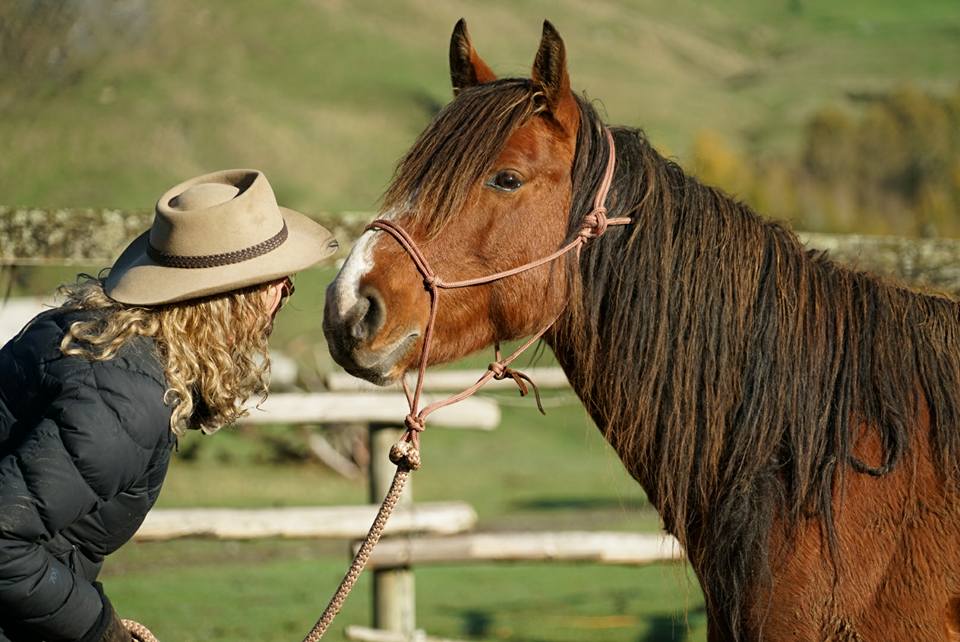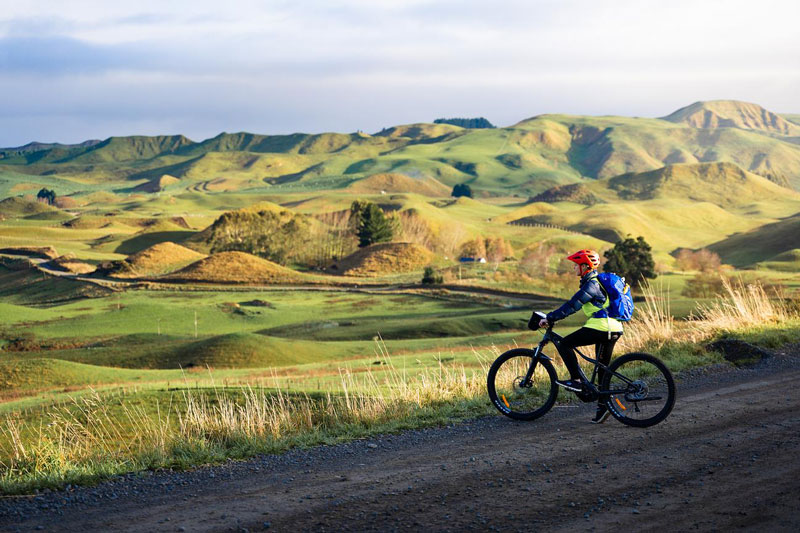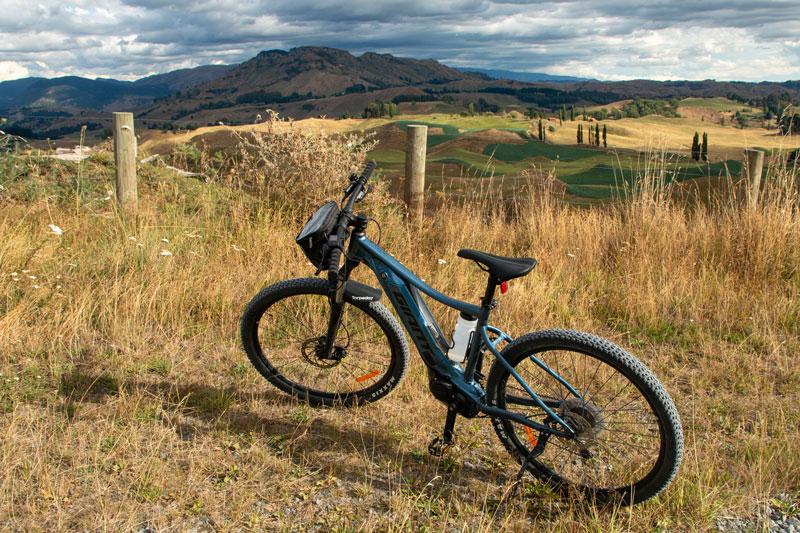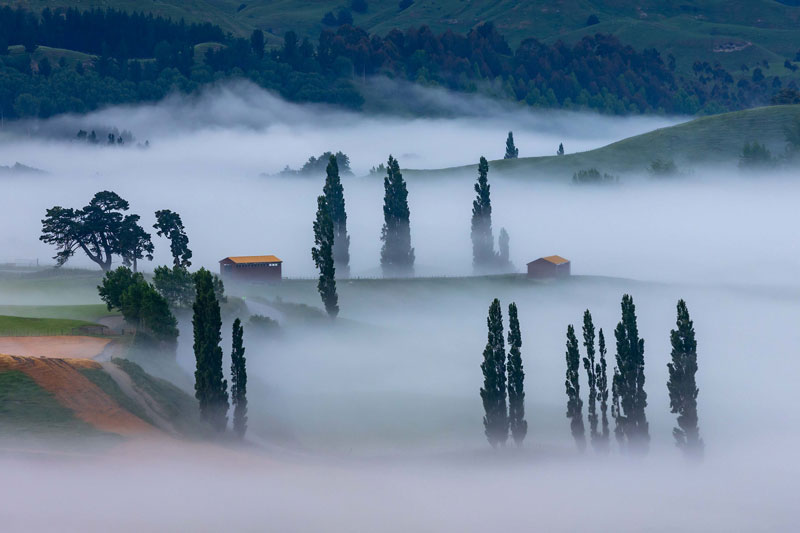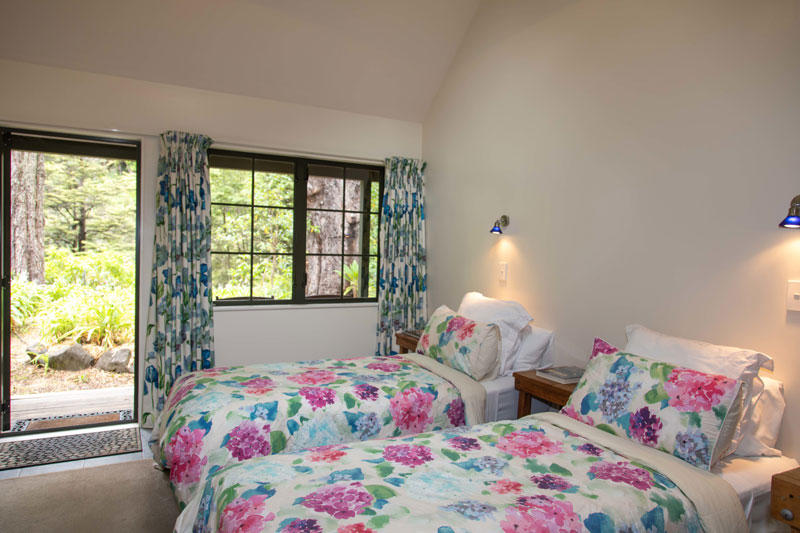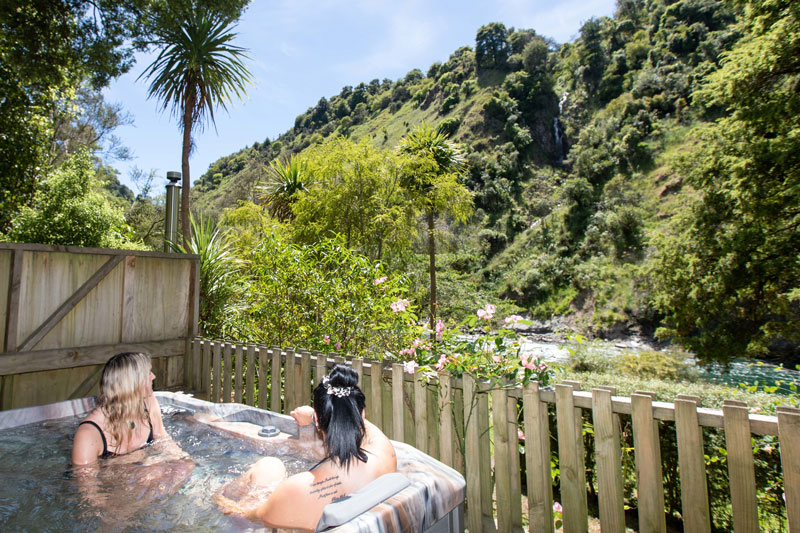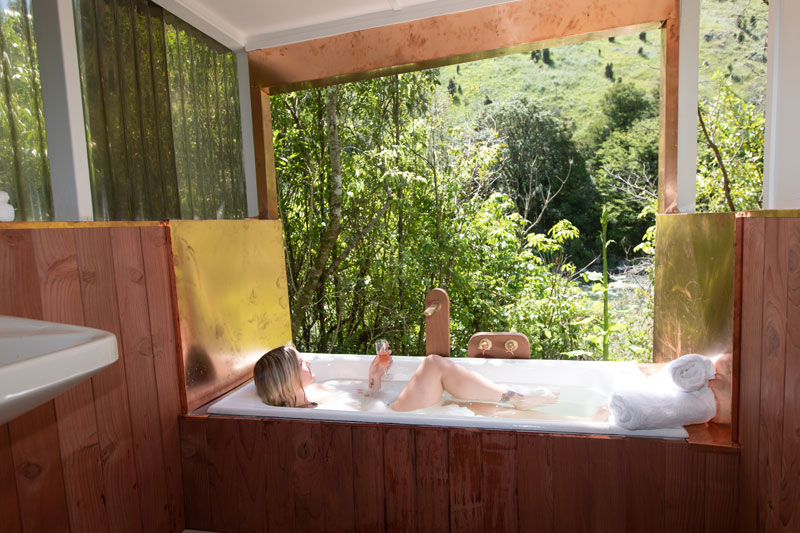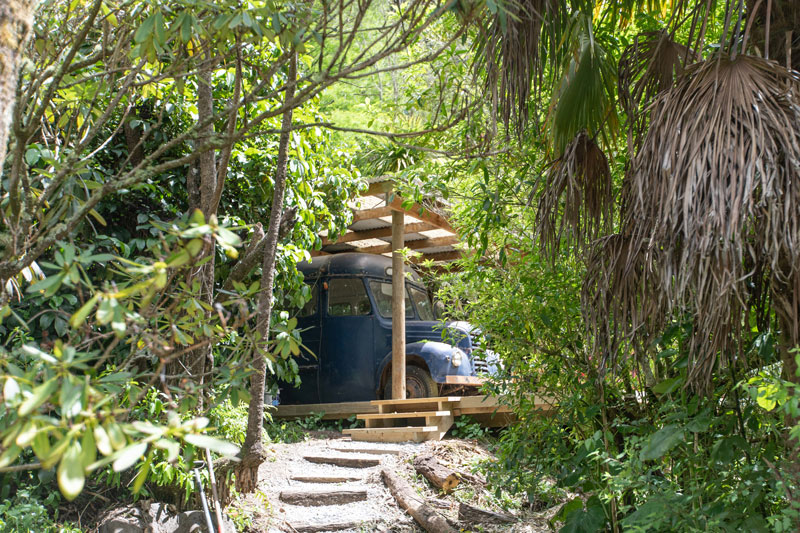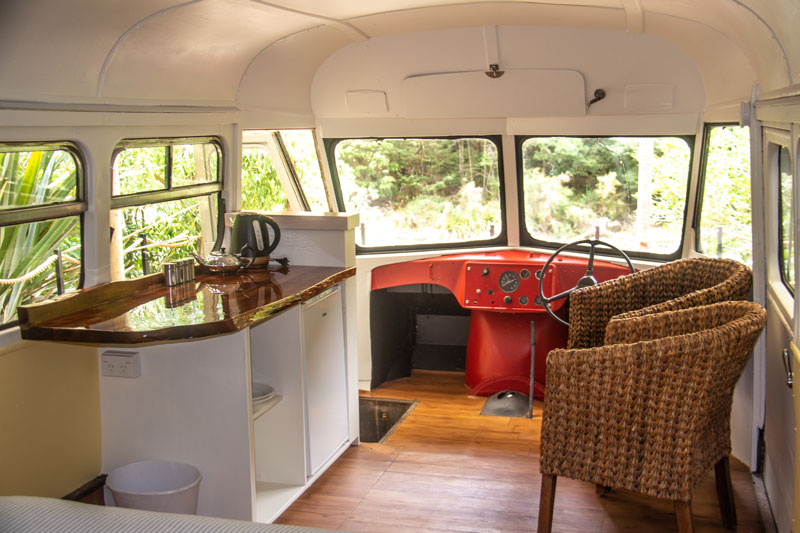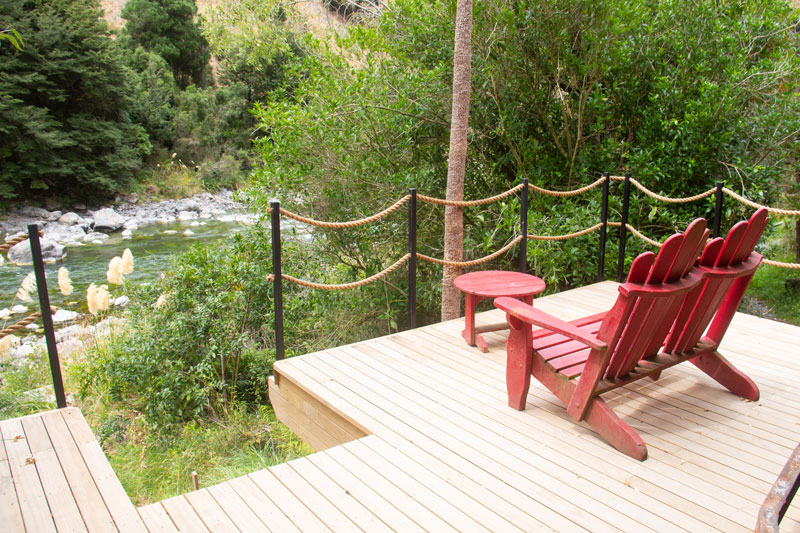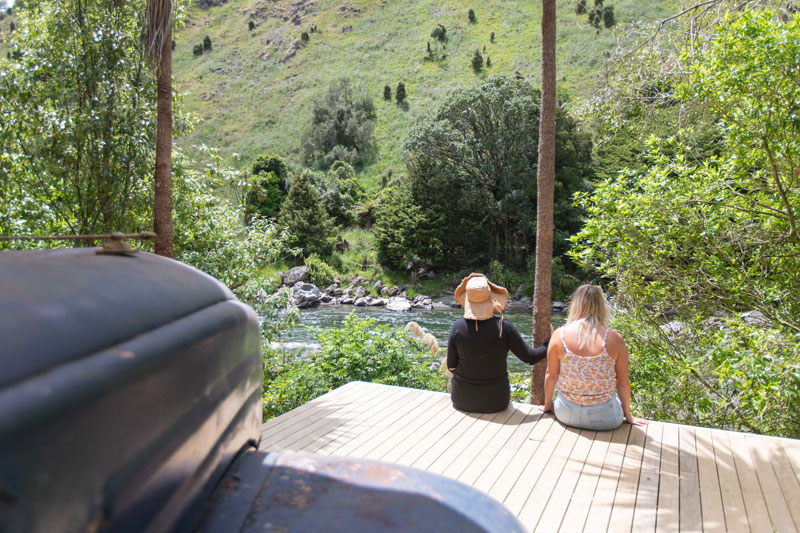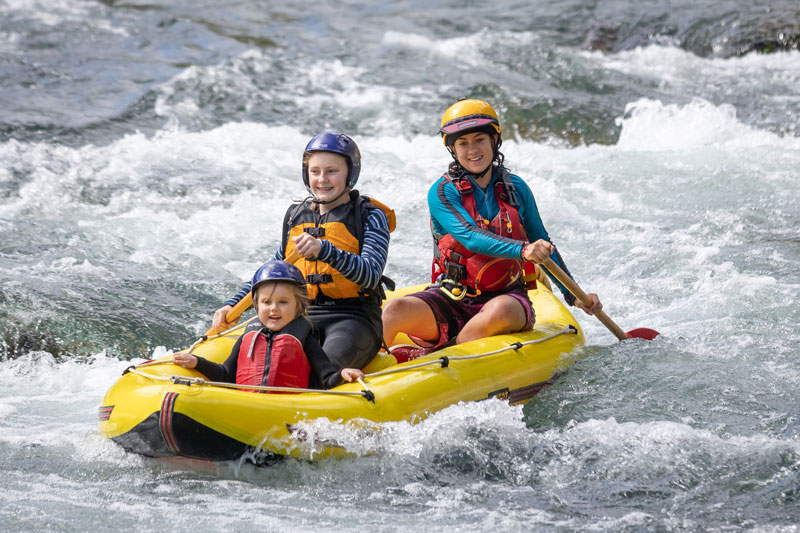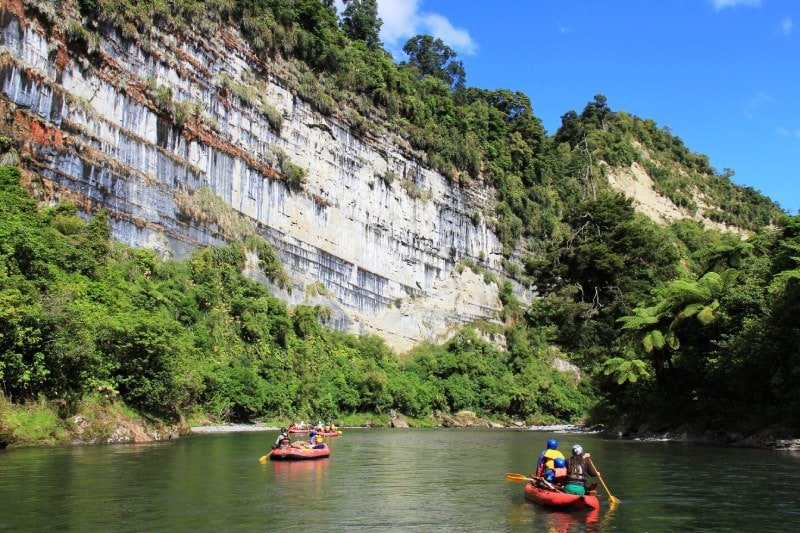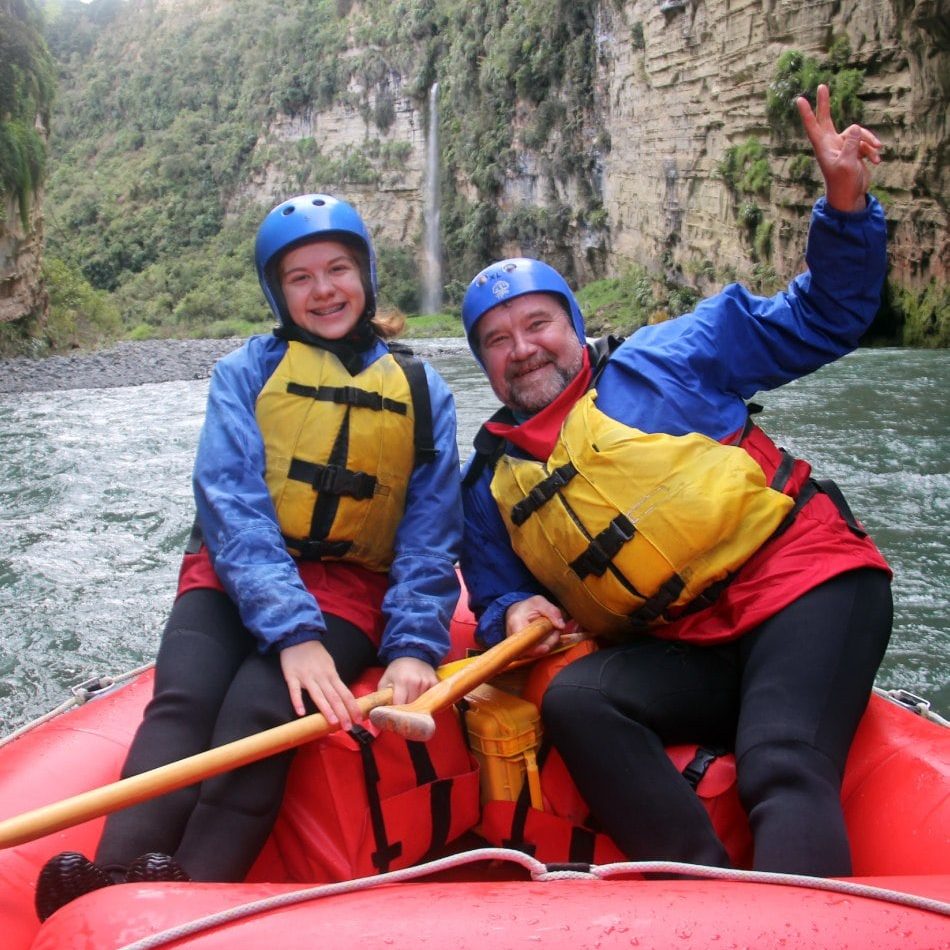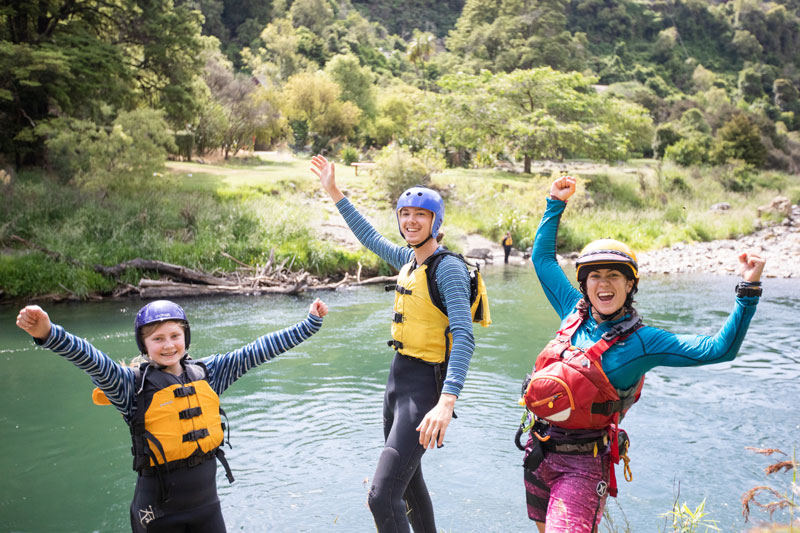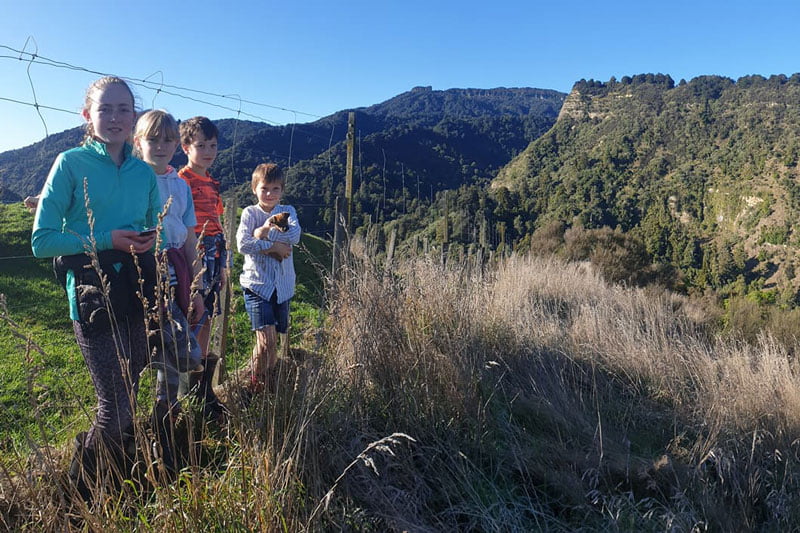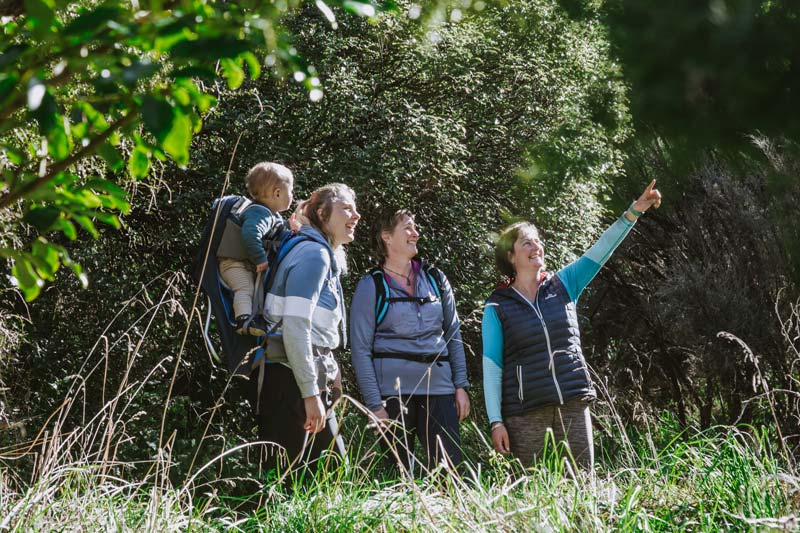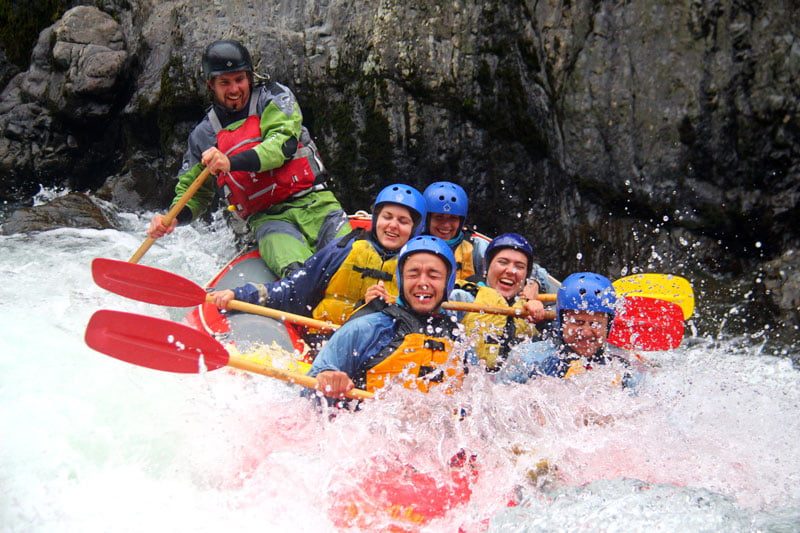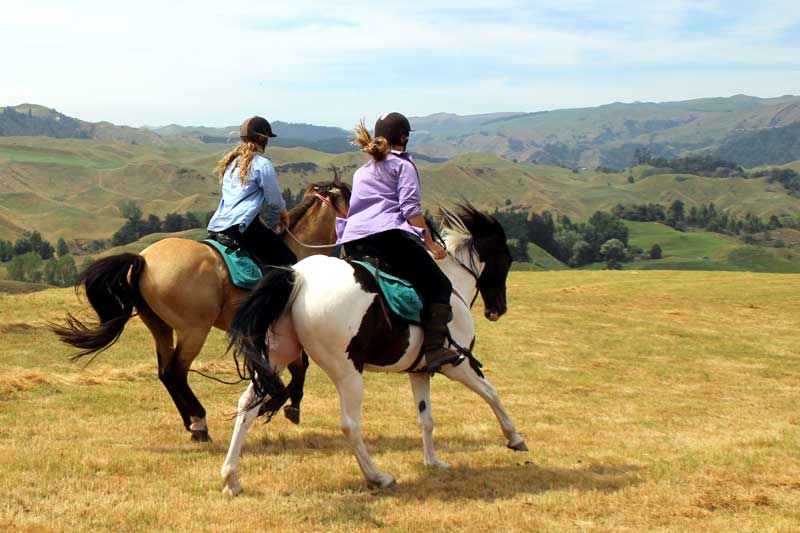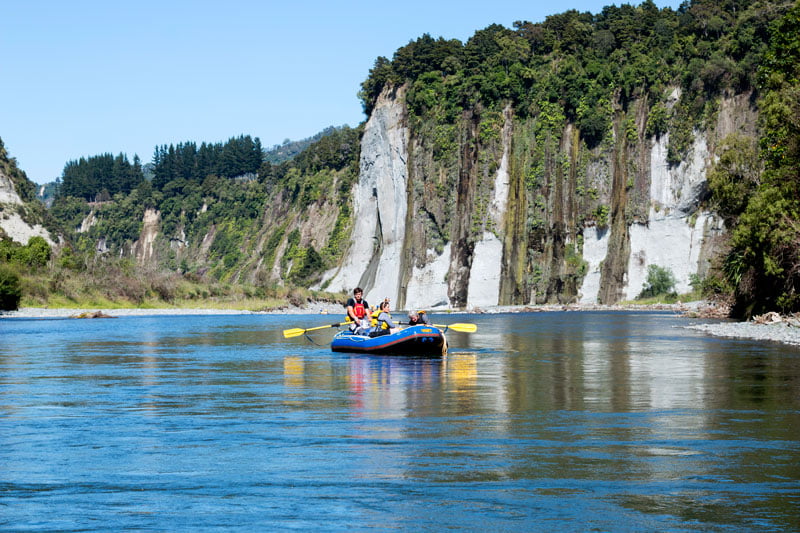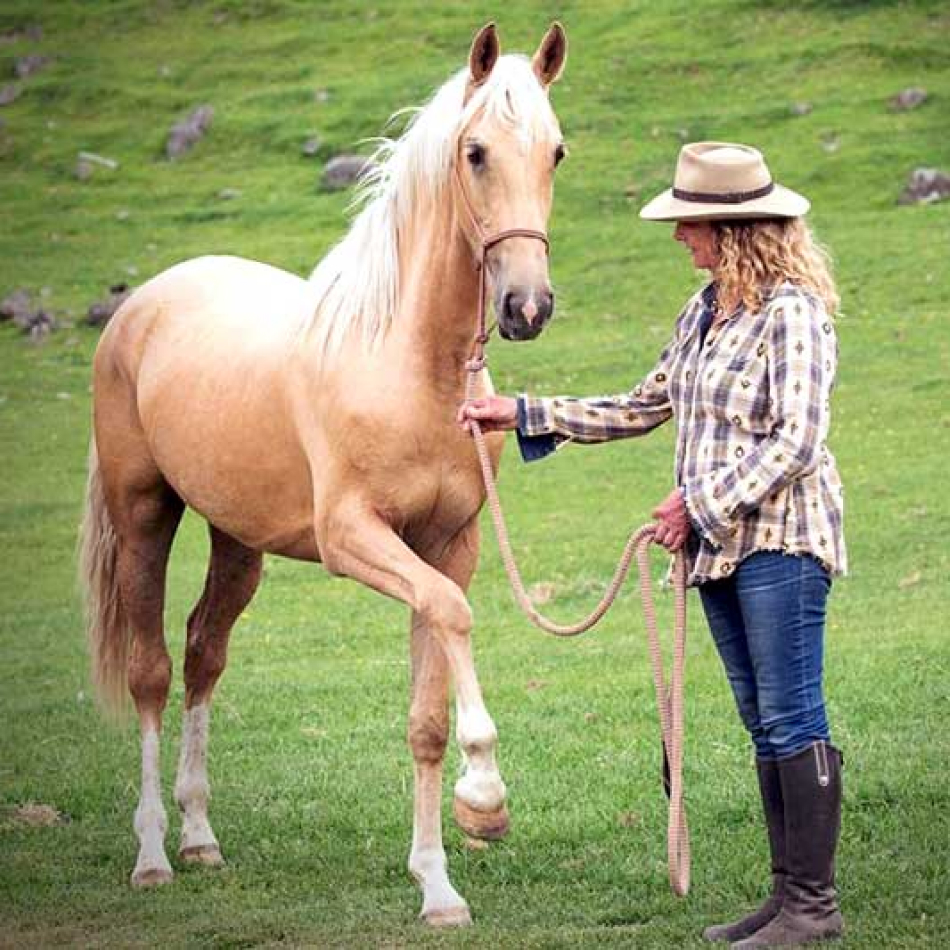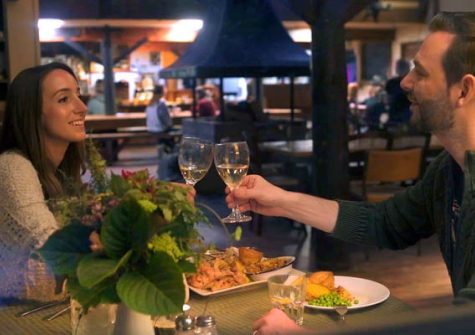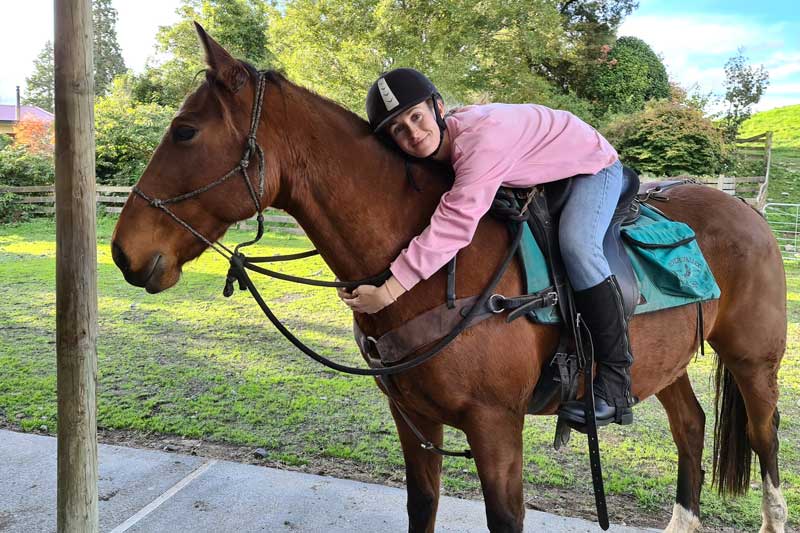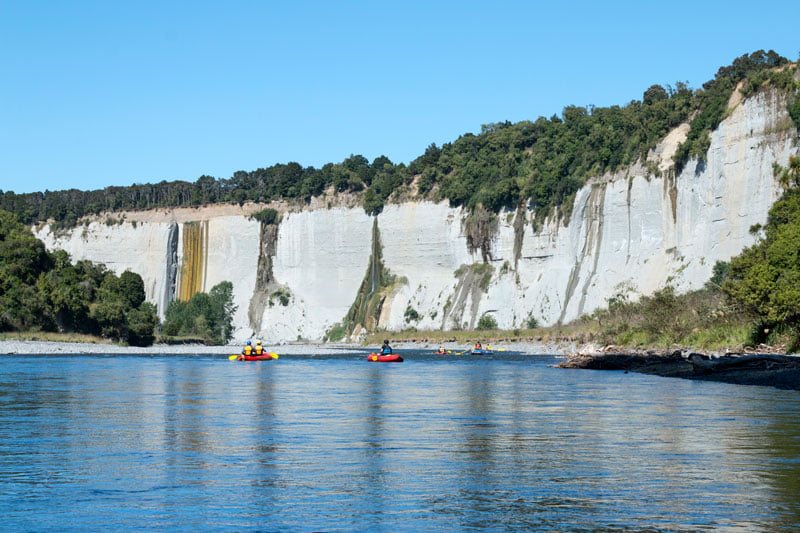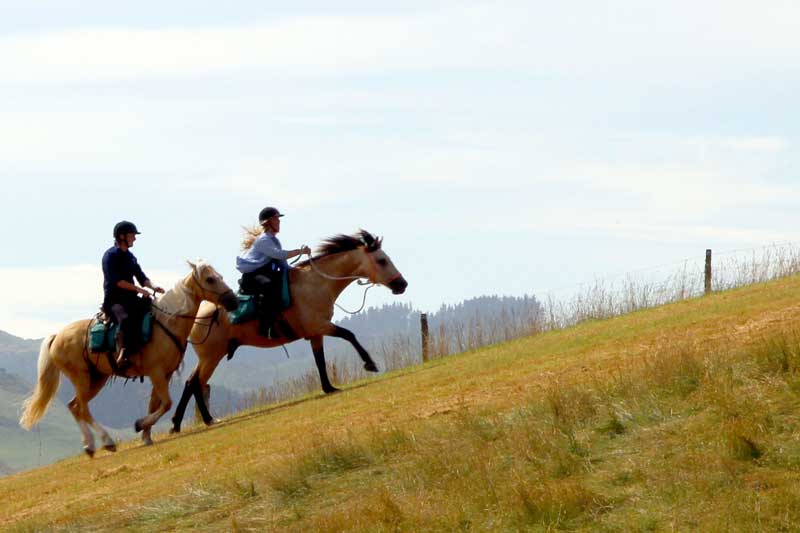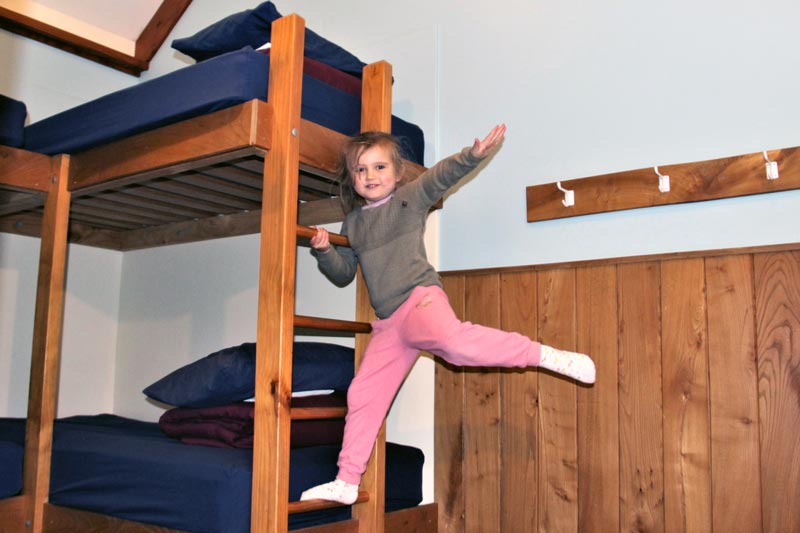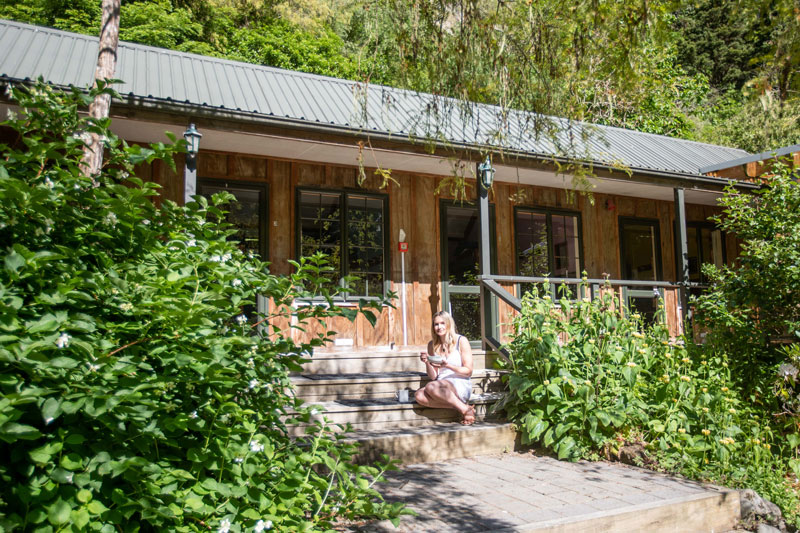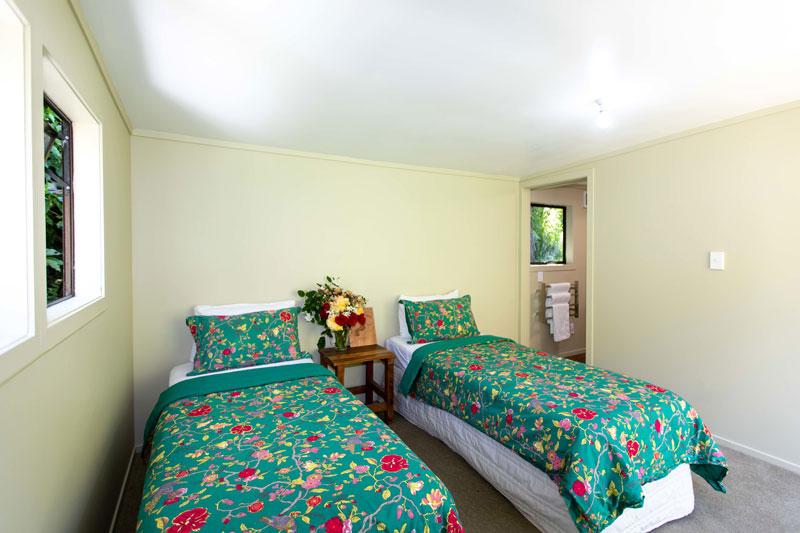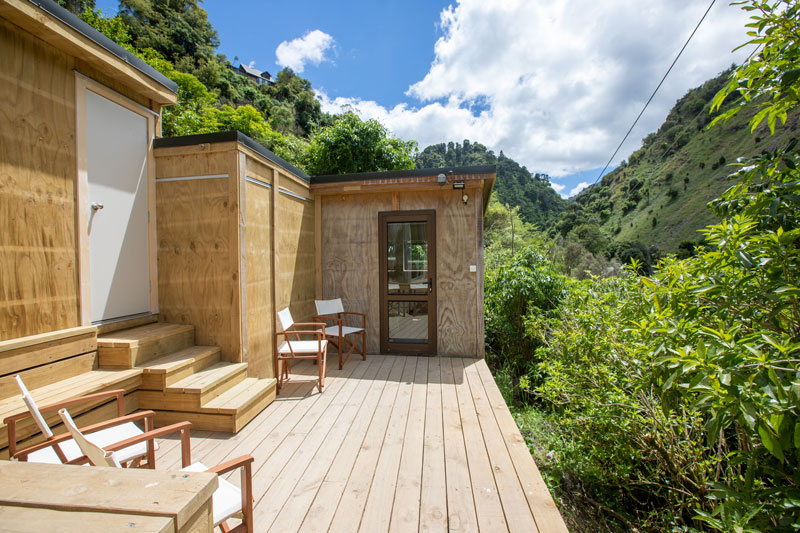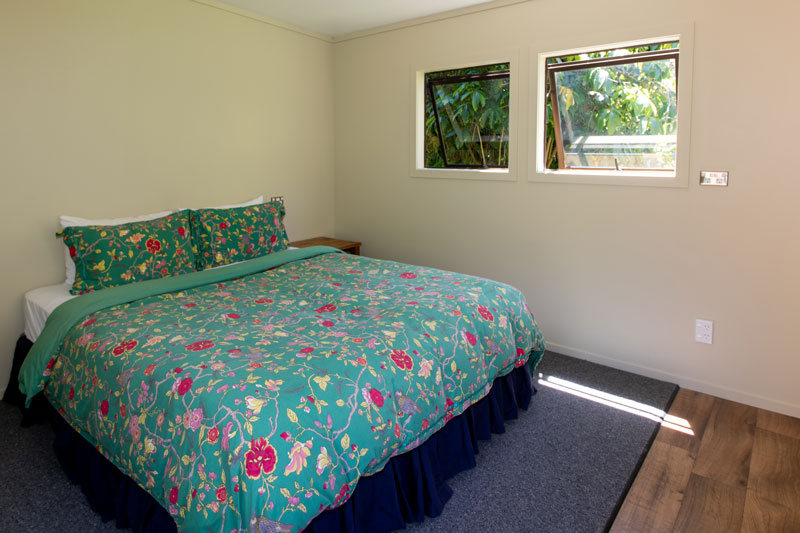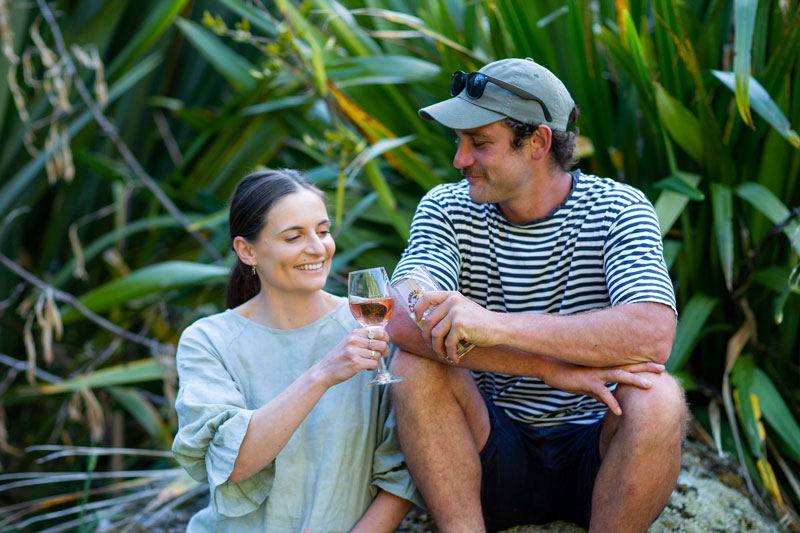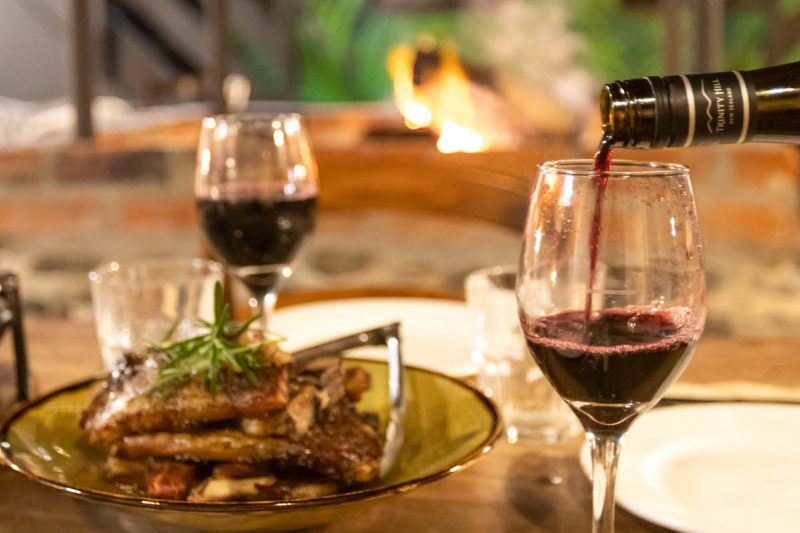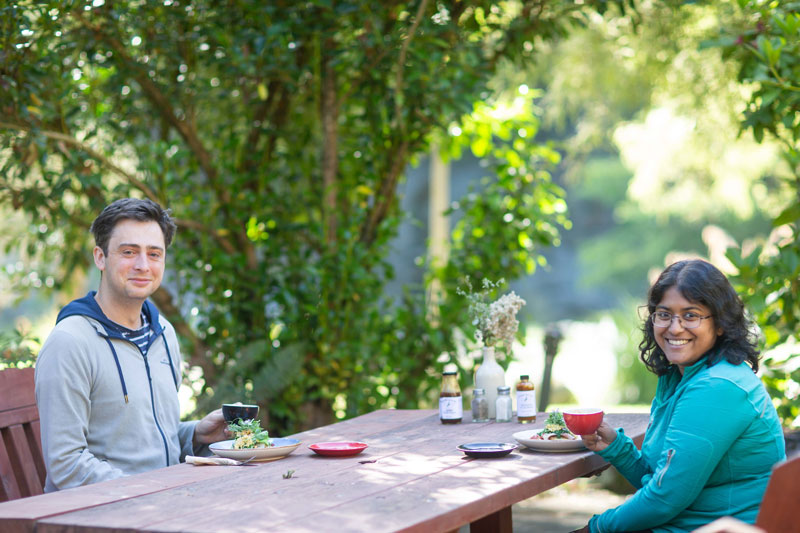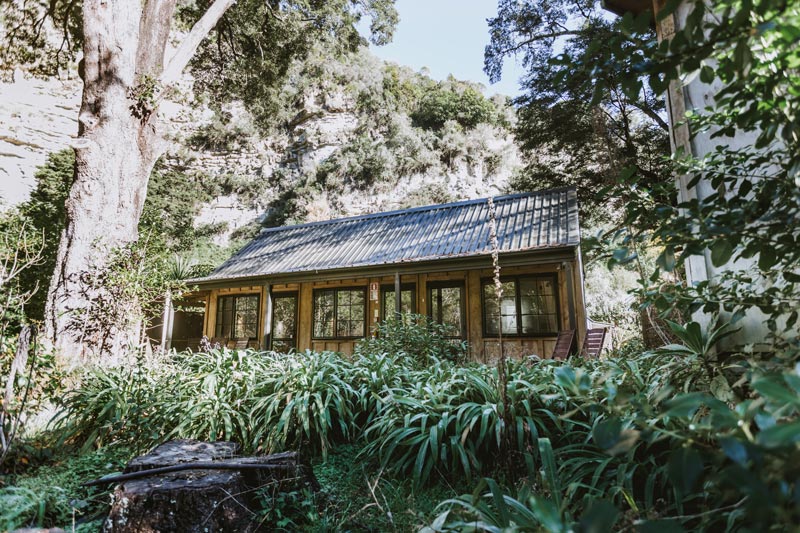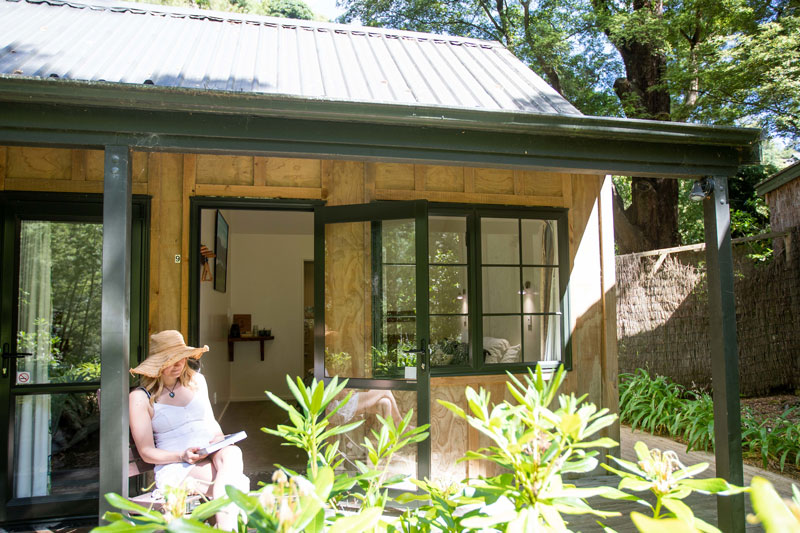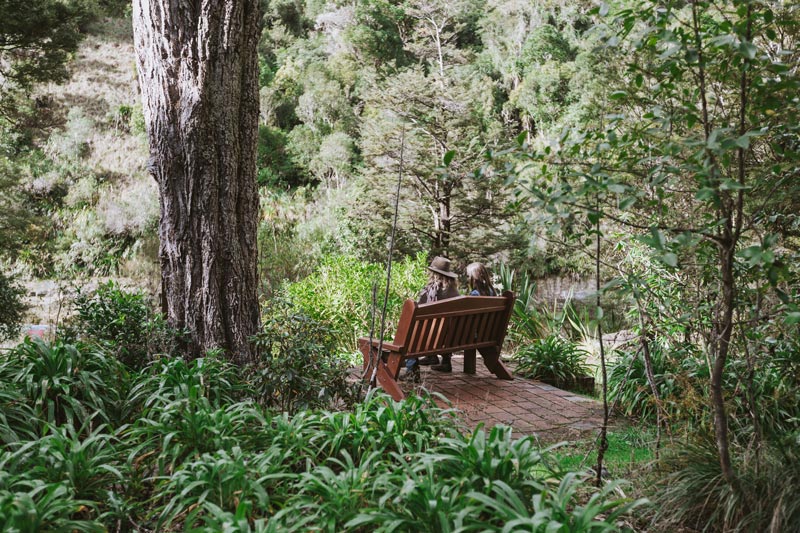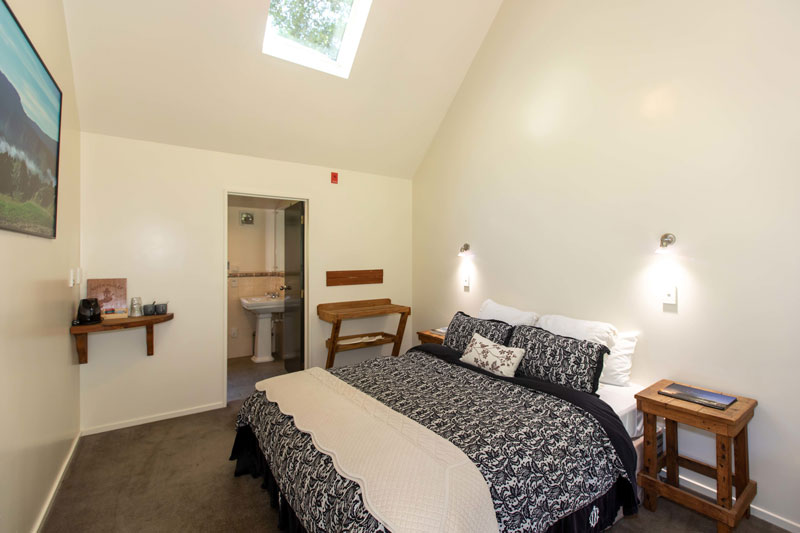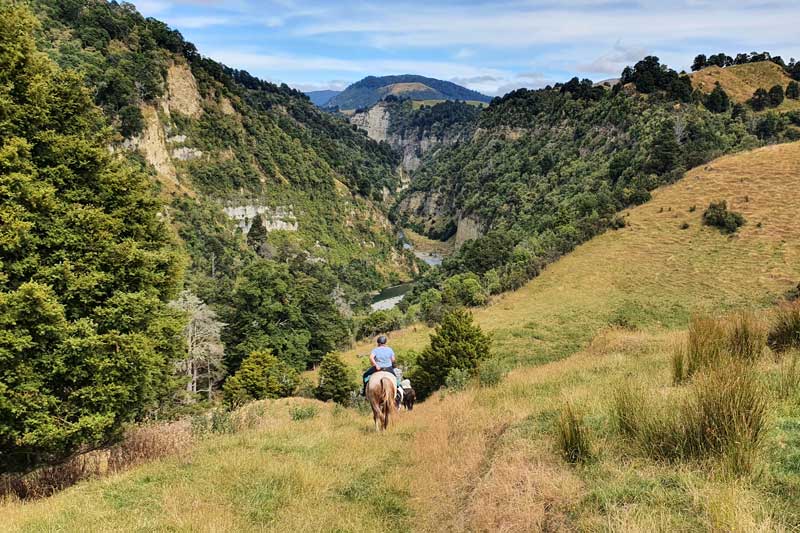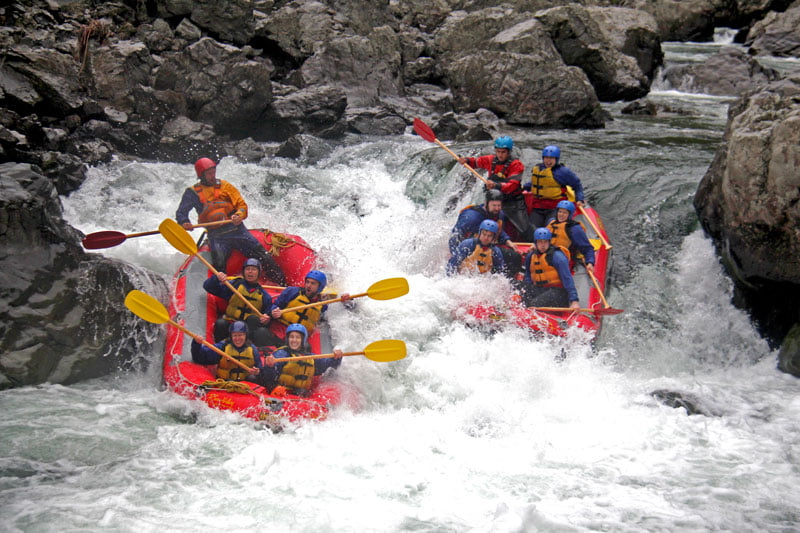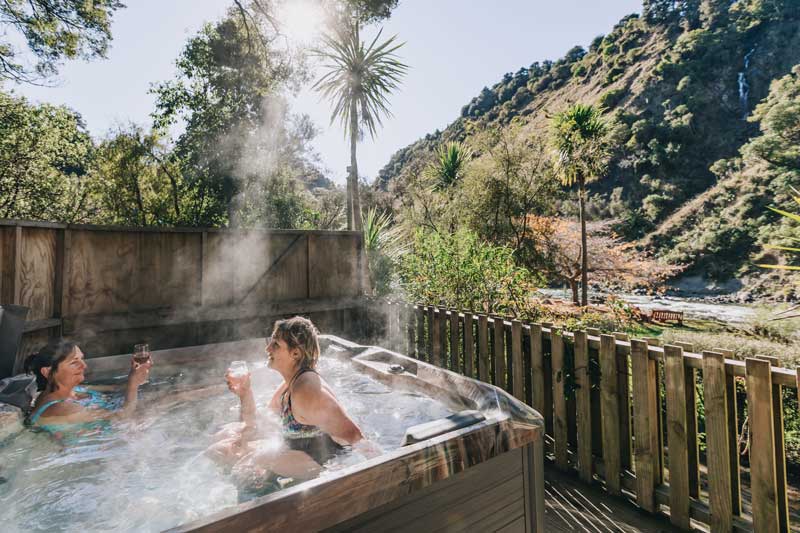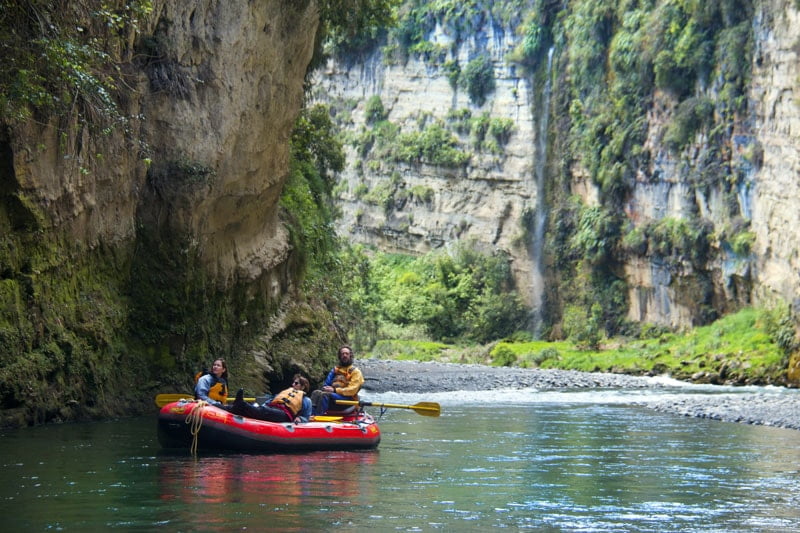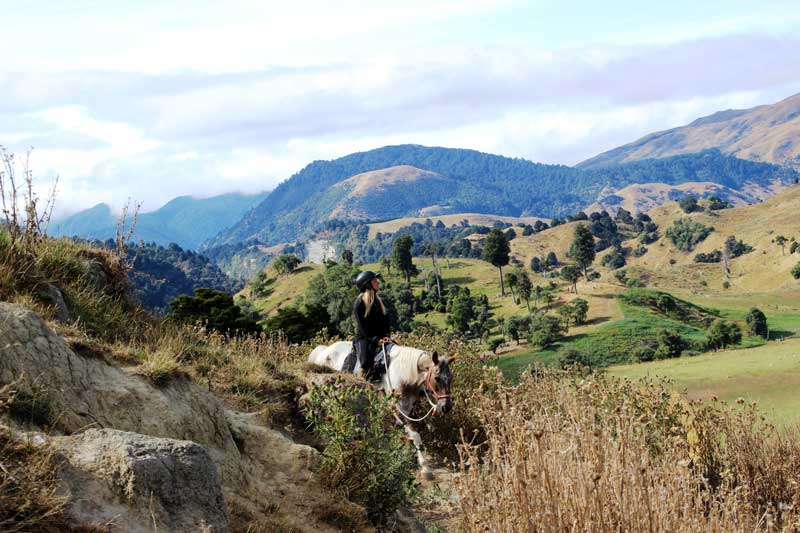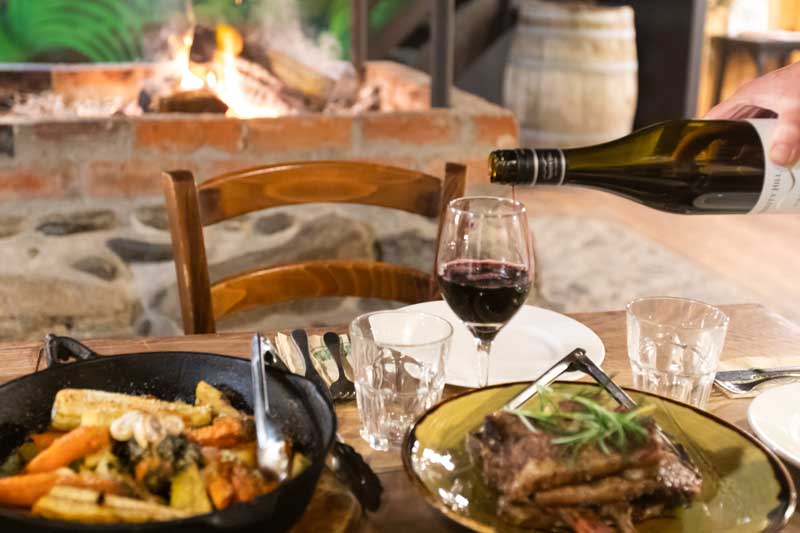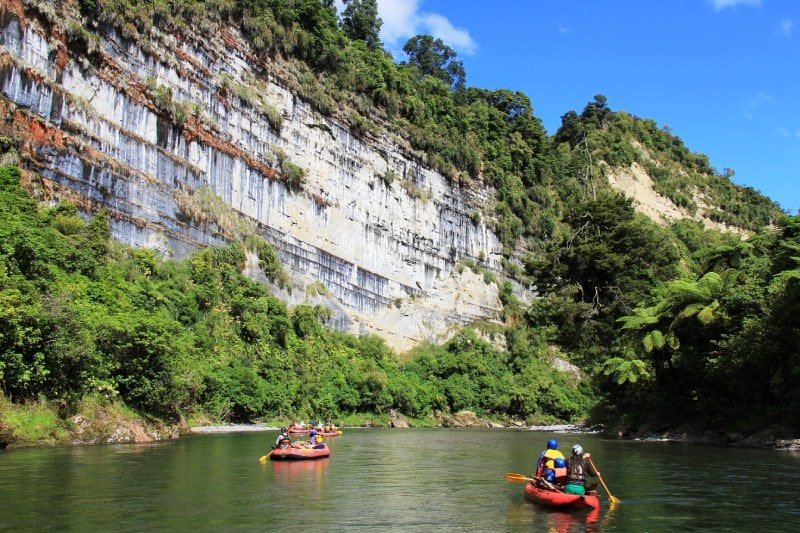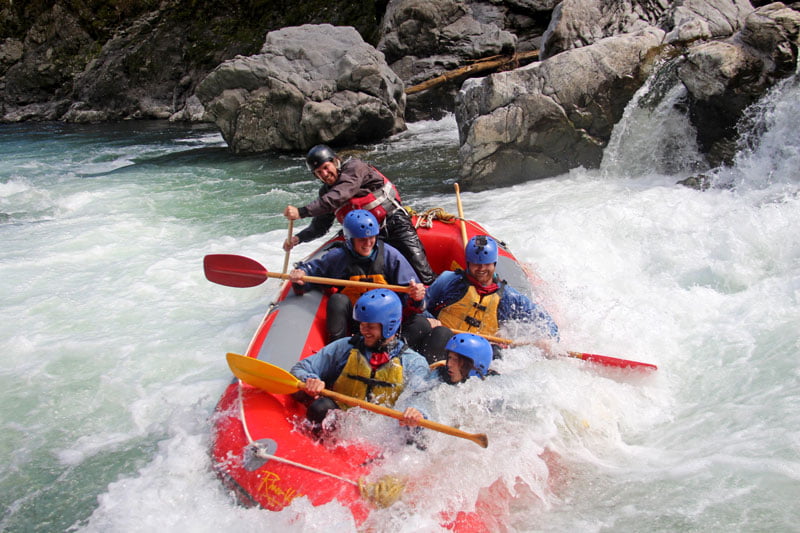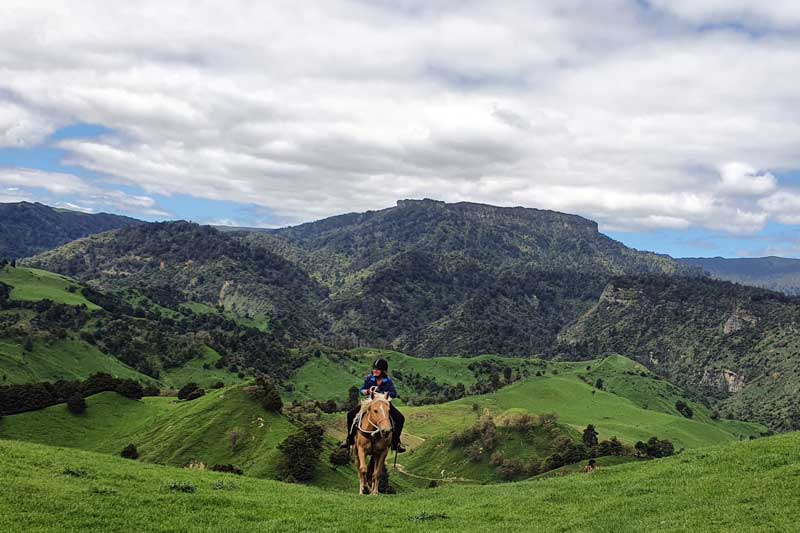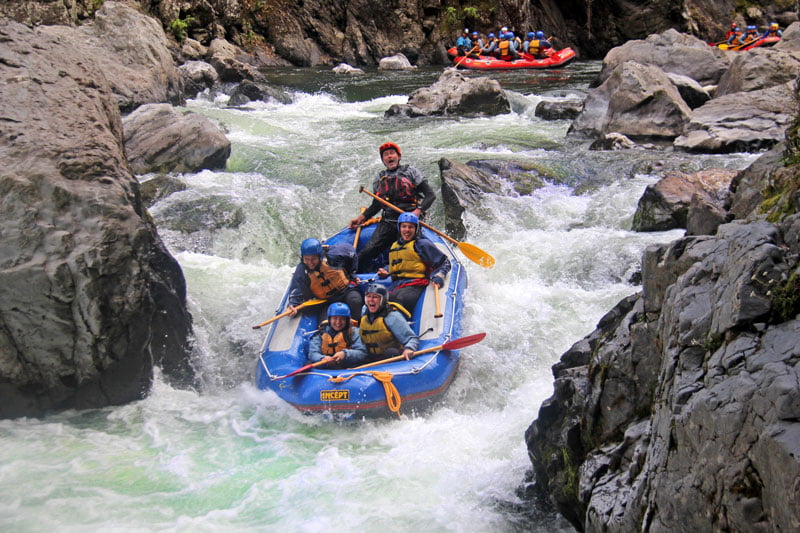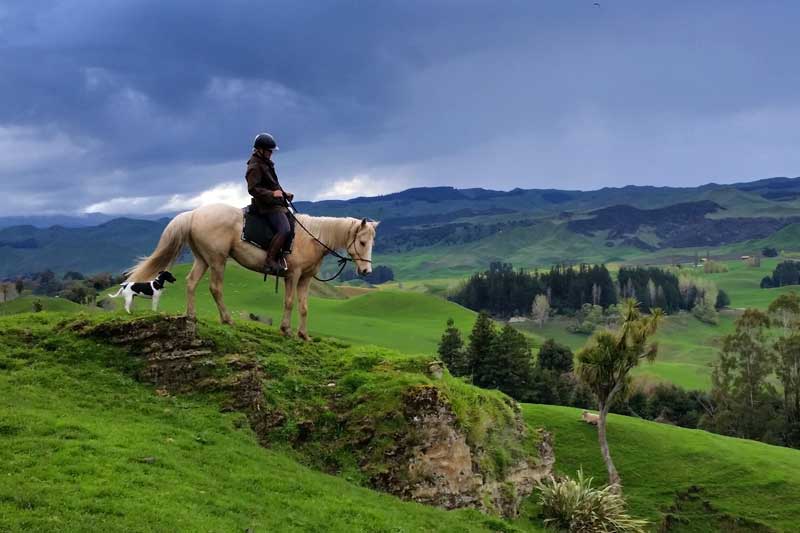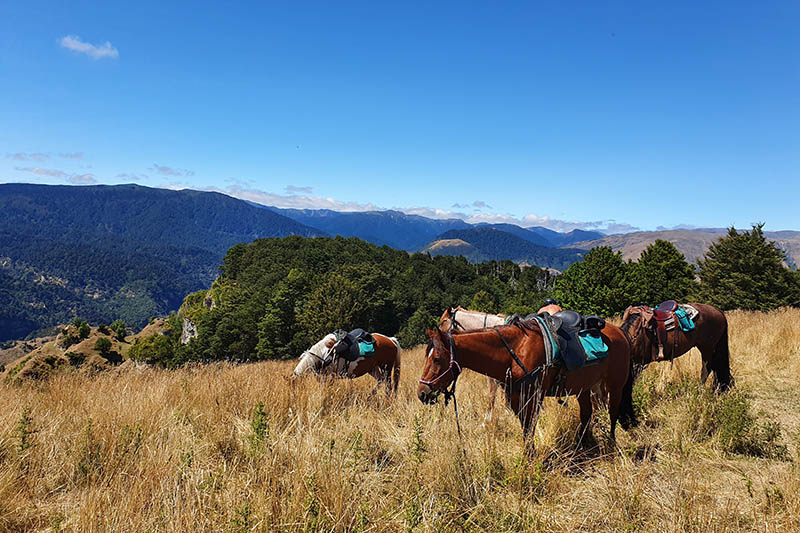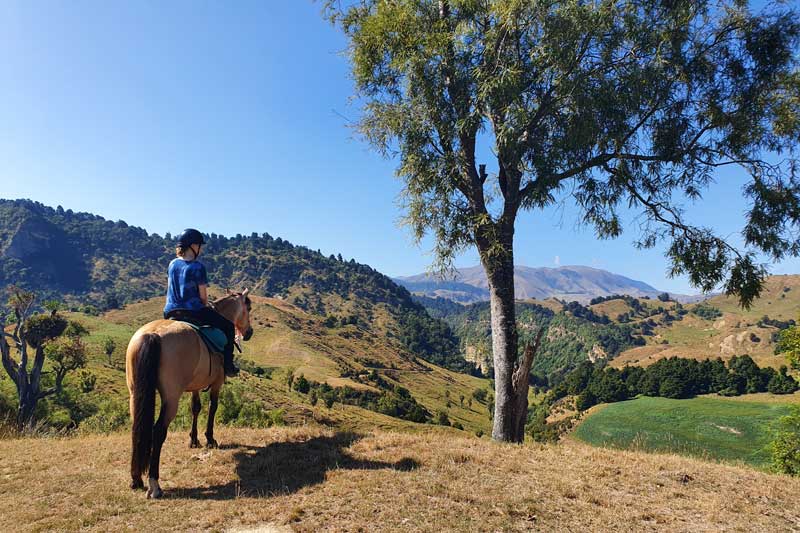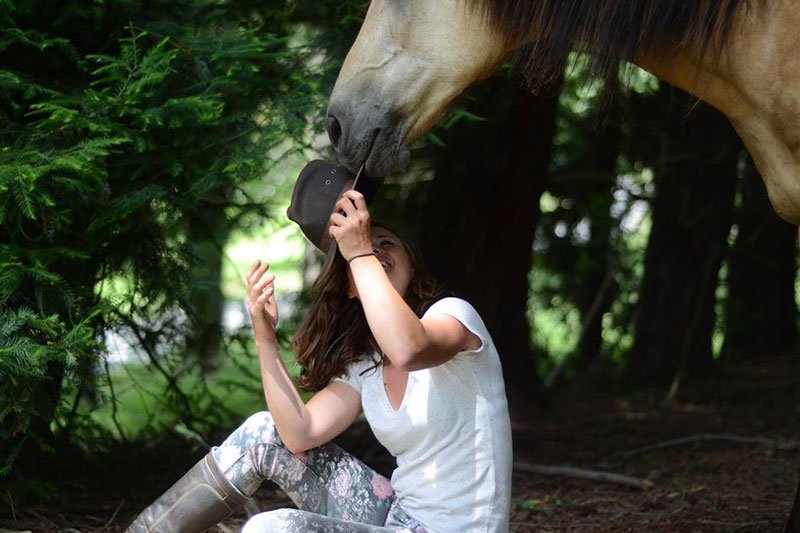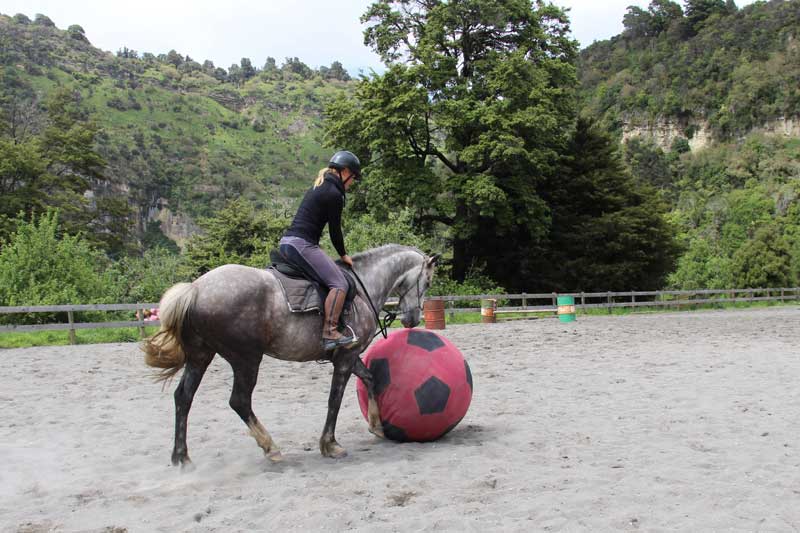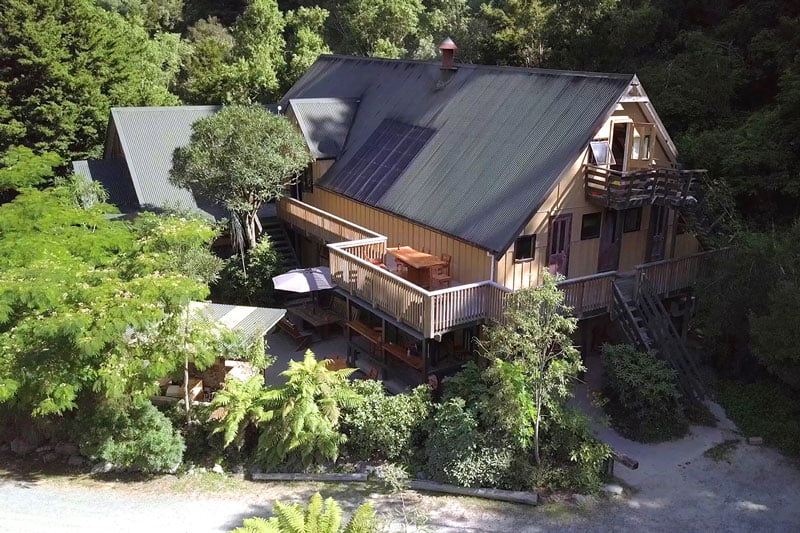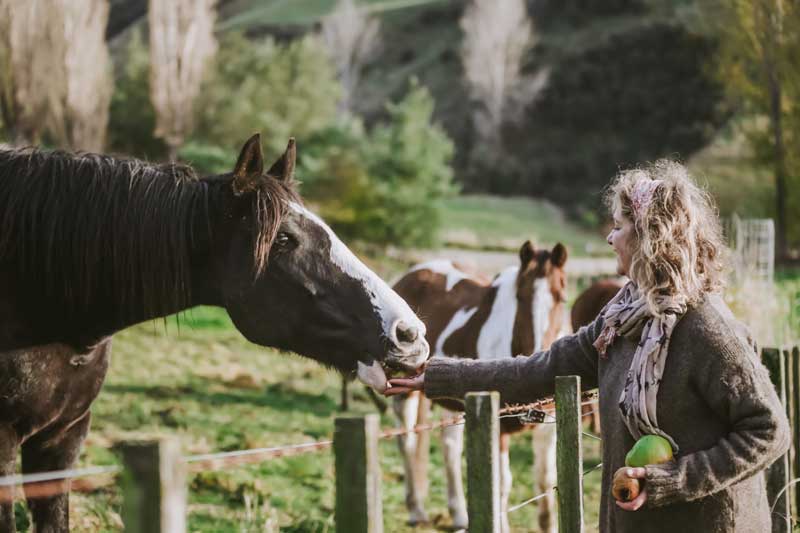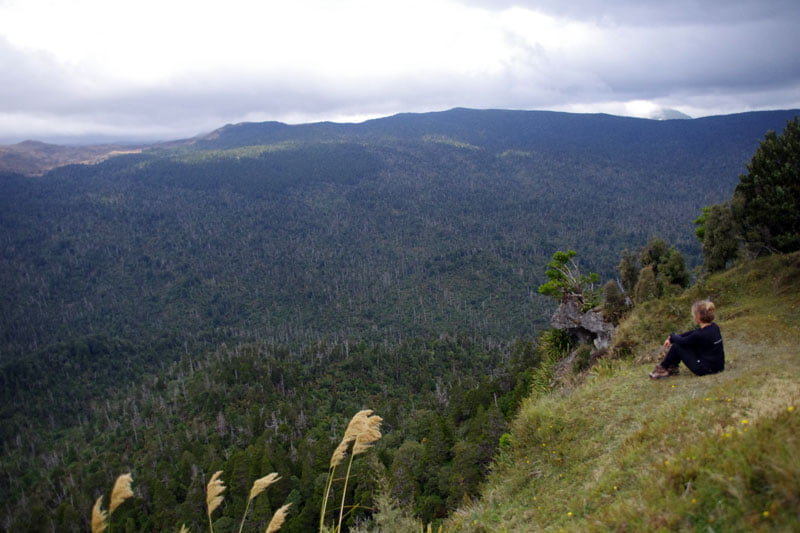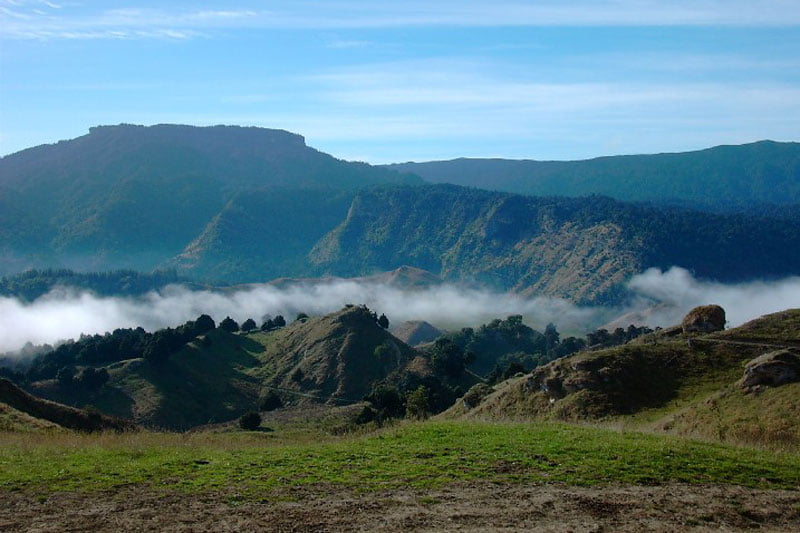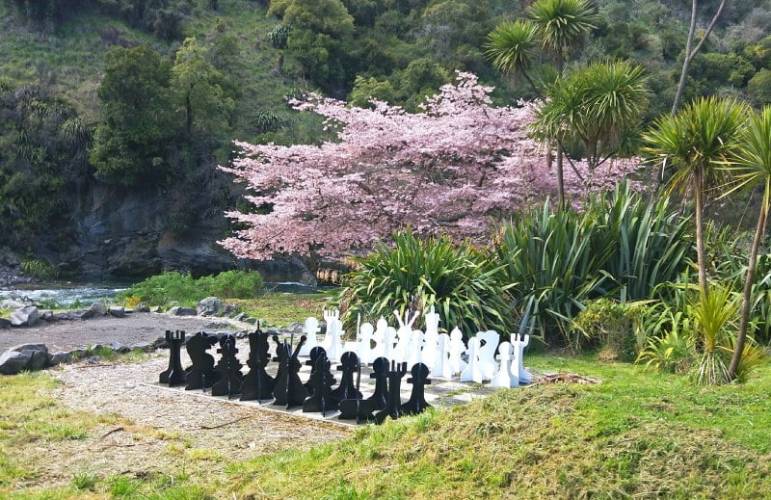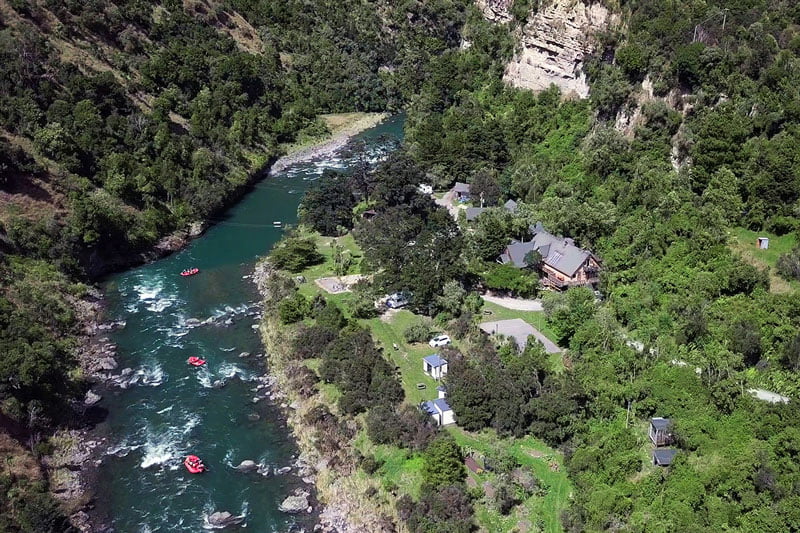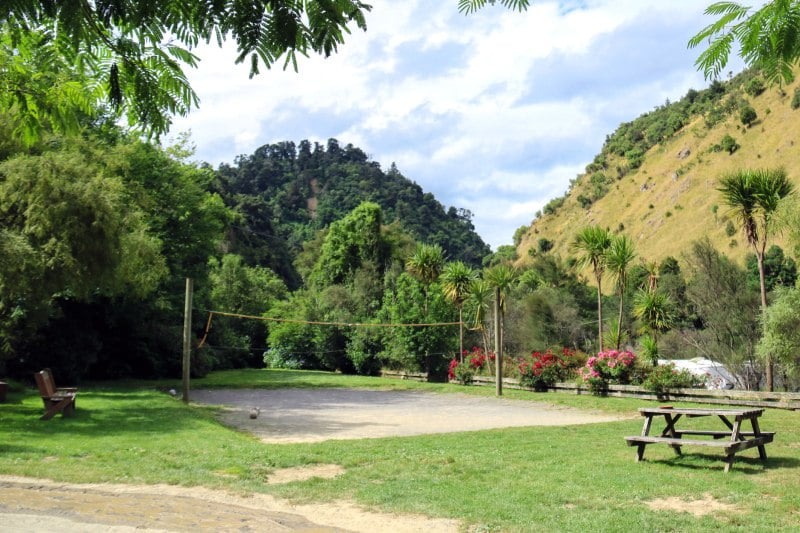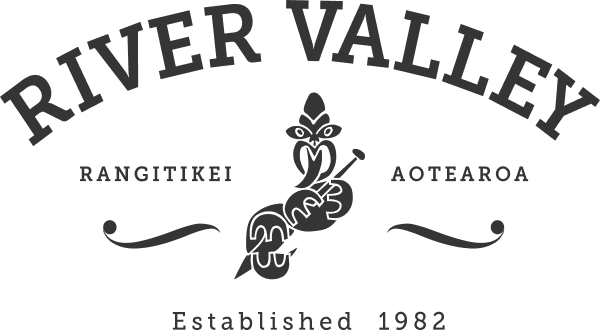Back On The Horse
Since the earliest days of River Valley, horse trekking experiences have been an integral part of the overall River Valley offerings, with the first treks offered in the late 1980s.
Over this time the culture and practices of offering these rides has changed a good deal. This has been driven by a growth in our own knowledge, but also a philosophical change in how we view the human/horse relationship. Nicola Megaw has been the major driver in this change.
The Stables operation (as in house we generally call River Valley Stables Ltd), recently reopened for the season. In a break from the past we now close over the worst of the wet and muddy winter months.
Horse trekking guides, Autumn and Thomas, along with Nicola, have spent the last few weeks getting the horses fit and back into the right head space. You know yourself that after coming back from holiday it is not always easy to settle back into work, and horses are no different. However, it seems to be a fact that horses enjoy having a job.
For me, primarily a non-horseman, but who has ridden a reasonable amount in the past, it is an absolute pleasure seeing these well-conditioned, calm horses saddled up ready for a trek each morning.
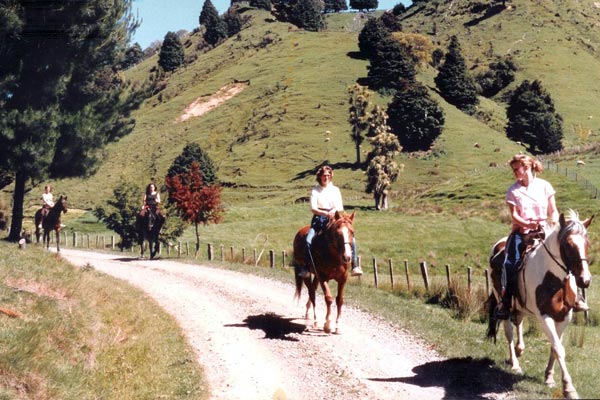
Horse trekking has been an integral part of River Valley since the late 80s
The stables operation now, using natural horsemanship with no bits or shoes.
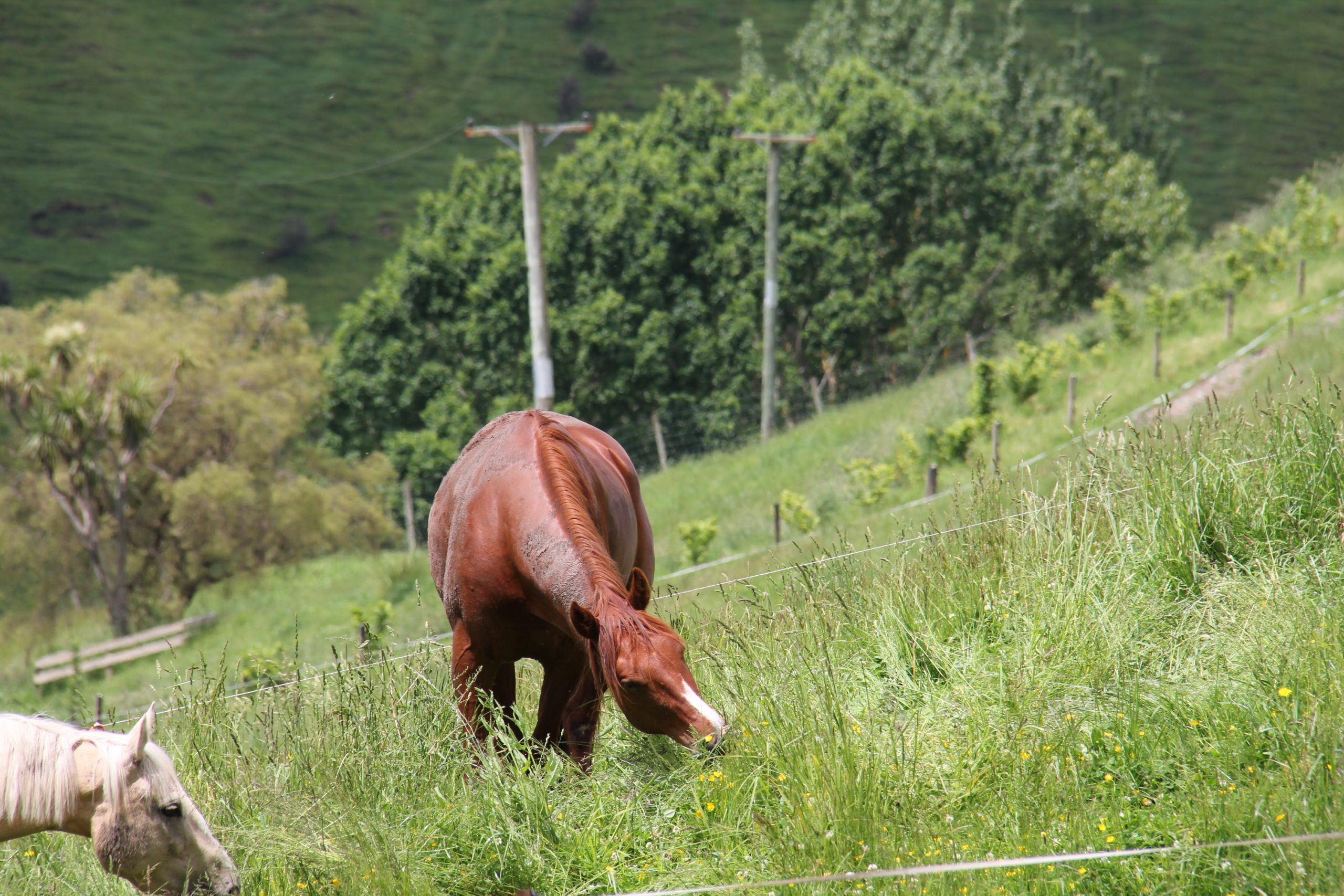
Holistic Planned Grazing
The current horses at River Valley Stables
What Makes The Stables Operation Different?
The trail we have gone down with River Valley Stables is not that of a standard horse trekking outfit. Rather we have taken a path that is, we think, better for the horses and more rewarding for the rider. However, it is not an easy journey, and to our knowledge has seldom been attempted in a commercial horse trekking operation.
As I have designed the grazing system, I am going to say it all starts with how we feed the horses. Of course, Nicola and the trekking guides would most likely disagree with this and say it starts with the approach they have to horse/human interaction.
The grazing pattern we use is based on a system known as Holistic Planned Grazing. This is explained in more depth in a previous blog that you can read here. If you don’t have time to read that, then it is enough to know that the system is based on emulating the grazing nature of herds of ruminants and plant eaters in a natural setting. Think long grass, daily moves to fresh pasture, extended rest for grazed pasture, a salad bowl of different grasses and herbs rather than the standard ryegrass and clover.
Horse/Human Interaction
To be honest, this is the hardest part to get right in a commercial setting. The style of horse training and riding can best be described under the loose banner of “Natural Horsemanship”.
While there are several quite famous practitioners of this form of horse training, they mostly deal with one on one where a person learns to relate to their regular horse using these techniques. Using Natural Horsemanship in a commercial setting where the horse has a different rider everyday is a completely different ball game. However, lets briefly describe some of the basics.
*** Horses are treated with respect. They are not some form of muscular animal motorbike.
*** Customers are shown how to create a relationship with their horse where the horse looks to them for leadership. This is started on the ground before riders ever get on their horse.
*** The style of riding is loose rein. We do not use steel bits in the horse’s mouths.
These are only a few very basic examples of how this style of human/horse interaction differs from a standard trekking operation where dulled down bored horses plod along in a the same order day after day.
The result of using natural horsemanship for our horses is reflected in them having more life and individuality. The bonus for the rider, is not only the chance to see some great views, but often the opportunity to interact with nature, in this case the horse, in a way that for some people is life changing.
This latter is a key part of where we believe the overall River Valley philosophy sits. That is reconnecting human beings with nature and realising that we are deeply a part of the natural ecosystem. Only by embracing this relationship can we really deal with the environmental problems, such as climate change, that are set to overwhelm us.
Brian Megaw
